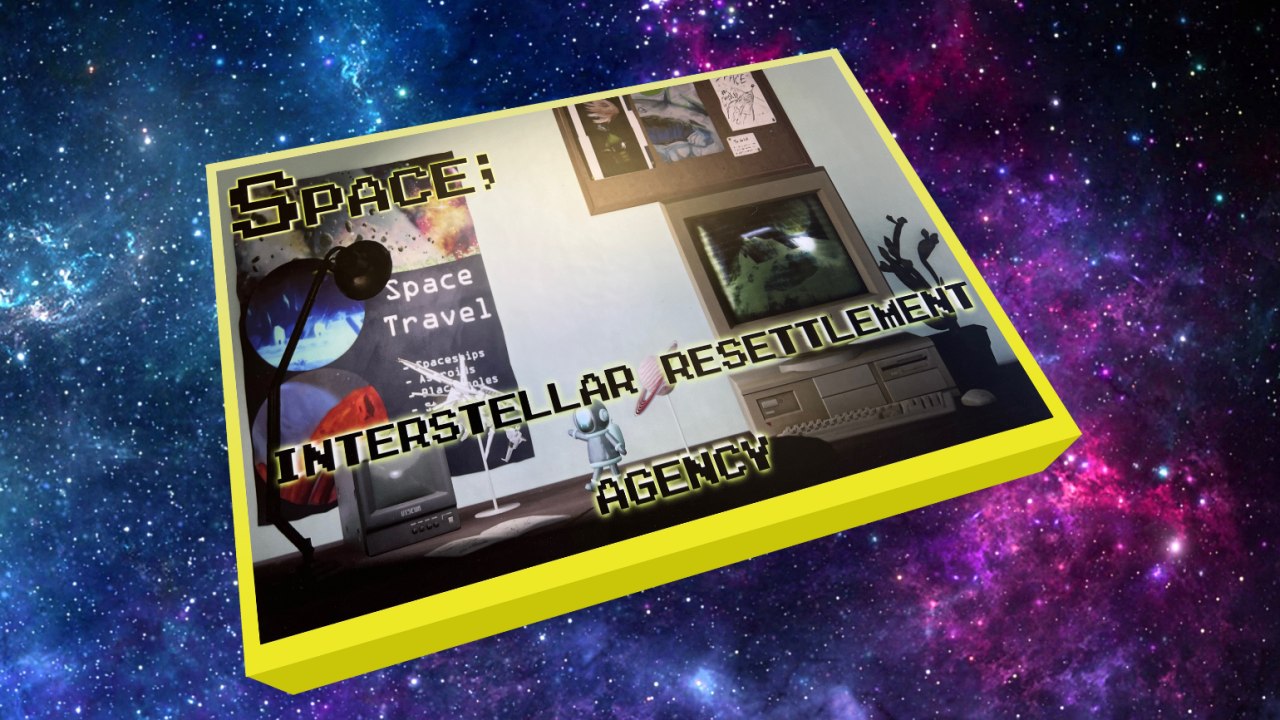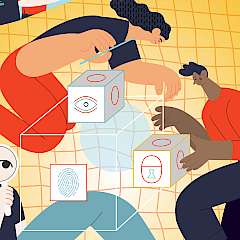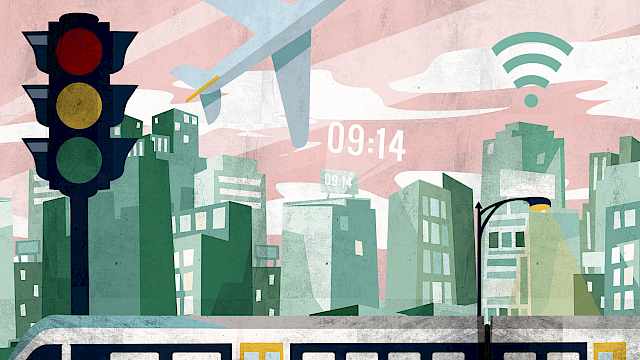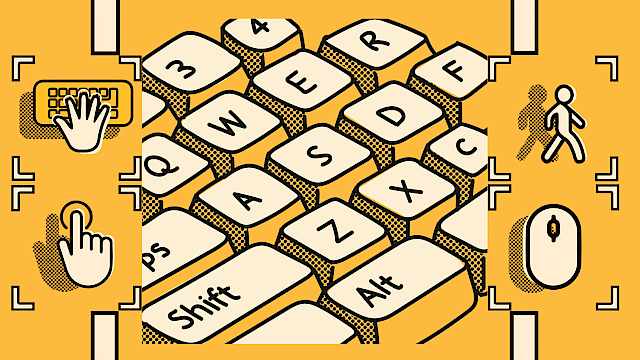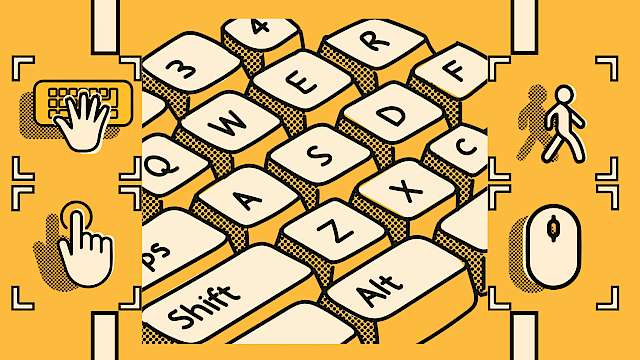The machines are making choices for us! THE MACHINES ARE MAKING CHOICES FOR US!
Okay, that is probably a slightly dramatic way to look at things, but the reality is that algorithmic decision making plays a big part in many of our lives, whether we like it (and are even aware of it) or not. This means that there are established processes and procedures that can be used to make decisions about fundamental parts of our lives and the world around us. It could be something as simple as what posts to show you on social media, right through to which school your child attends or which country a refugee might end up living in.
The idea of ceding control of these decisions often makes people feel slightly uneasy, after all, can a machine possibly make choices that take into account the nuance and range of the human experience? The answer is yes, but they can only do it as well as they are told to. Often the biggest problems come from us, the humans in the loop, who design the algorithms in the first place and build them with their own internal biases for all to see.
This is something that we looked to tackle head on in an EPSRC funded project (People Powered Algorithms for Desirable Social Outcomes). Our research found that one of the biggest barriers to acceptance was a general distrust of the process, and allowing a machine to make decisions for us. This general suspicion was often a result of a lack of understanding about the processes and the way that decisions were reached. For example, people think it is possible to game the system for choosing a primary school by only selecting the school you really want, whereas in reality, only choosing one results in the parent being penalised.
...one of the biggest barriers to acceptance was a general distrust of the process, and allowing a machine to make decisions for us/
The focus of our research was the use of refugee resettlement algorithms, as this is a complex system with a lot of stakeholders across geographic boundaries. It is also a contentious subject, with people often basing their opinions on misconceptions or personal feelings on the subject. One of the key elements of our research was to encourage people to engage with the subject to gain a better understanding of what really happened in that decision making process, and some of the positive outcomes for both sides of the equation. This is something that we wanted to explore further, to highlight the complexities in the processes and underline the benefits to the refugees and the communities in which they settle. We wanted something that was interactive to let people see these algorithms as something more tangible than an ephemeral collection of ones and zeros in a computer’s brain. A board game was an ideal choice, as it could provide an artefact to interact with, giving the ideas presence and physicality, while also drawing out problem solving and curiosity in our potential players.

The board game
The game that was developed as part of this research is a cooperative challenge for up to four players. The players take the role of administrators within the Interstellar Resettlement Agency, an intergalactic bureaucratic organisation tasked with finding homes for species displaced by a range of natural catastrophes. The players engage directly with the algorithm, to try and find the solution that will benefit both the refugees and the communities where they will be located.
The main design process used in the game, Space: Interstellar Resettlement Agency, used a research-led method of translation, synthesis and iteration. The keywords, concepts, ideas, and meanings were distilled from the current practices and research to develop game mechanics. The aim of this process was to ensure that the meaning and key points of the research and literature are at the core of the experience for the players. For example, the game uses an input/output machine as a central component to dictate the state of play for the players, and the algorithm itself offers a puzzle-like game mechanic. This central puzzle that the players must work together to solve is determined by the algorithm. It offers a rigid and repetitive challenge, which once fully understood can be leveraged to manufacture the best results.
The puzzle-like experience was evolved to include a worker placement mechanic, to highlight where a refugee could be placed within a local community. This brings a shape-fitting mechanic, similar to that seen in Tetris, which draws out the benefits to a community of a vibrant and diverse population. One of the key things that the game sets out to achieve is to not only improve cognition of the algorithmic processes but also to educate players about the realities and benefits that a refugee community can bring to the wider population.
Developing any game that aims to educate and communicate it is essential to ensure that the experience is fun and challenging, otherwise it is incredibly difficult to gain engagement with the topic. Space: Interstellar Resettlement Agency draws players together to work cooperatively to solve the overall puzzle, which in this instance is maximising the outcomes of the algorithm to provide a mutually beneficial conclusion. The shared experience and challenge are finely balanced to communicate the central ideas and deliver a sense of immersion.
Ultimately the mode of designing is effective in the direct translation of the algorithm, however, this relies on a confident understanding of common gameplay mechanics. The game offers players the opportunity to experiment with different possibilities of translations, bringing in more exploration. This serves to ensure that the story, narrative and setting of the game, which are core concepts of the research, are central.
The game itself tackles topics and material that could be considered sensitive, for instance, at a base level the general perception of algorithms can be a politically charged subject. Added to this is the focus on refugee resettlement and relocation, these are contentious subjects and often polarize opinion. As a result, the game provides an abstraction from reality, using a science fiction, space narrative to encourage engagement with the subject and reduce any political or social biases that may be inherent prior to playing the game. The game’s setting aims to dehumanize the subject matter in a way that made sure players did not feel that they were trivialising an important and impactful subject. Thus, Space: Intergalactic Resettlement Agency is set in a fictional space environment and using the bureaucratic setting of a civil service-like institute to keep the narrative close enough without causing direct offence or treat key issues without importance. In addition, adopting a rigid evaluative approach to the project, and ensuring the game is thoroughly play-tested, exposes any inappropriate design choices whilst drumming up an audience.
Machines really do offer an unbiased approach to processing data and making decisions, and they just execute the instructions that we, the human designers of the algorithms, give them.
The game is meant to act as a starting point for further conversations about refugee resettlement as well as the broader concepts of algorithmic decision making. The most basic takeaway from the game should be that there are these processes that can be used to decide lots of things for us, but this is not a bad thing. Machines really do offer an unbiased approach to processing data and making decisions, and they just execute the instructions that we, the human designers of the algorithms, give them. We want players to see the algorithms as an interactive and dynamic system that can develop and evolve, and most importantly it is not inherently unfair. The cooperative element of the game was an intentional design choice to foster a spirit of collaboration and community, as that is what the resettlement process does at its heart – it creates new communities.
The game also acts as a starting point for further research into the subject and people’s engagement with algorithmic decision making, but also as a framework to understand just how well a game can translate complex ideas and make them entertaining and engaging.
This project has tackled some interesting and difficult concepts in security. Firstly, how do we translate technically challenging ideas into an experience that everyone can understand? Secondly, how do people interact with black box systems, as this is essentially what algorithmic decision making is to most people and if we provide them with an understanding of what’s going on under the bonnet, are they more likely to trust the process? Finally, do games provide an engaging platform to disseminate complex concepts to a wider audience, like trust, privacy, fairness, and social justice?
Read more
Jones, W. and Teytelboym, A., 2017. The international refugee match: A system that respects refugees’ preferences and the priorities of states. Refugee Survey Quarterly, 36(2), pp.84-109.
Jones, W. and Teytelboym, A., 2018. The local refugee match: Aligning refugees’ preferences with the capacities and priorities of localities. Journal of Refugee Studies, 31(2), pp.152-178.
Noda, S., Shirotsuki, K. and Nakao, M., 2019. The effectiveness of intervention with board games: a systematic review. BioPsychoSocial medicine, 13(1), pp.1-21.
Copyright Information
Thanks to Jake Montanarini, The Launch Pad Games, who helped
develop the game (www.thelaunchpad.games) and Helen Quinlan,
HQ Studios, who developed the artwork for the game.
